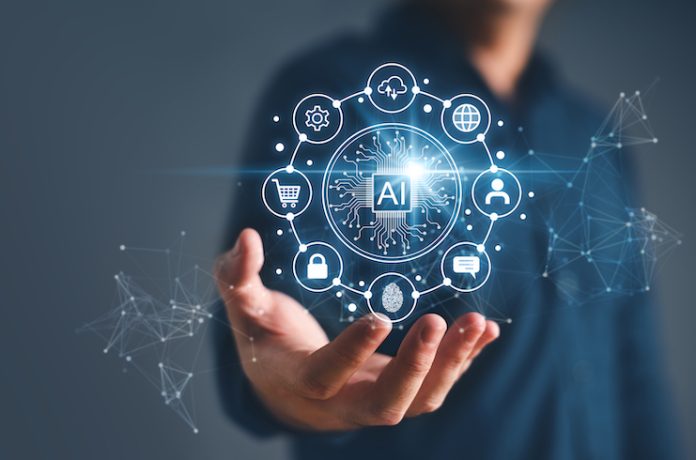Artificial intelligence (AI) is revolutionizing the hospitality industry by optimizing operations, improving quality and safety, and enhancing the guest experience. AI’s rapid growth can help hospitality brands analyze complex data to make more informed decisions, advance forecasting, increase revenue, and more. Throughout the industry, hotel brands are increasingly using AI to help elevate operations—from enhancing their quality efforts to becoming more sustainable.
Here’s why now is the time to consider implementing AI:
AI analyzes complex data for better decision-making.
AI can analyze large, complex data and distill information into important insights to guide decision-making. This can improve a variety of decisions—such as staffing, scheduling, and purchasing—to save brands money, optimize resources, and reduce waste.
AI can also improve operational effectiveness by reconciling information from various data points throughout an organization—like from point of sale systems (POS) and property management systems (PMS), plus guest/staff interactions (requests, comments, complaints)—and turning it into meaningful recommendations to improve hotel operations and the guest experience.
Additionally, AI can predict market trends and improve forecasting, giving brands insights for their strategic planning. Leveraging these insights, organizations can make smarter decisions, allocate resources more effectively, and increase their bottom line. AI can also optimize hotels’ inventory management by forecasting demand and adjusting room prices accordingly. Hotel brands can use predictive analytics to set room prices based on demand to maximize revenue and more accurately predict future earnings.
AI-powered tools can optimize hotel operations.
AI can help improve many aspects of hotel operations, improving productivity, efficiency, profitability, quality, sustainability, automation, and resource optimization. For instance, AI-powered tools can drive faster check-ins and check-outs, leading to a smoother guest experience. The AI technology automates this process, allowing staff to focus on guest-centric tasks.
Additionally, AI can improve supply chain management, allowing brands to better optimize inventory levels, manage logistics, and boost safety, quality, and transparency across the supply chain.
AI can improve safety and quality.
AI monitors and analyzes quality parameters, ensuring standards are maintained across the supply chain. AI-powered tools can accurately detect defects or contaminants to improve product quality, proactively identifying and addressing quality issues before they negatively impact products.
AI can also detect contaminants or spoilage in food products, improving safety, regulatory compliance, and consumer trust. Additionally, AI is instrumental in tracking and tracing products across the supply chain for accurate recalls if and when safety breaches occur.
Since cleaning and sanitation are instrumental in boosting safety, hospitality brands can rely on AI-powered tools to automate and improve their cleaning and sanitation processes to meet stringent safety standards and eliminate potential hazards from cross-contamination, norovirus, COVID-19, and more. Robots can automate and accelerate cleaning in many hotels, using germ-killing cleansers and UV lights to disinfect guestrooms and common areas.
AI can help boost sustainability.
Increasingly, consumers prioritize sustainability, so hotels need to do the same, some by using AI-powered tools. For instance, AI can track data around food waste. Every year, 30% of all food and drink ($48.3 million) is thrown away in the United States, due to inefficient inventory management, inaccurate demand forecasting, and other preventable factors. Hotels can use AI to reduce this food waste (and related costs) via accurate demand forecasting, inventory optimization, and expiration date management.
AI can elevate the customer experience.
In the competitive hospitality industry, hotels can use AI to differentiate themselves. For instance, AI solutions can understand guests’ preferences, such as the type of room and amenities they prefer. Brands can even upsell based on guests’ historic buying patterns to increase revenue.
AI can also automate in-room deliveries. Some hotels have AI-powered robots that deliver clean towels and room service meals.
AI chatbots and virtual assistants can assist guests with booking reservations, making recommendations, and answering questions, boosting customer satisfaction, loyalty, retention, recommendations, and sales. Additionally, AI can provide prompt, personalized customer responses to emails and social media posts.
A huge benefit of AI is that employees can spend less time on time-consuming administrative tasks (e.g., responding promptly to every Facebook post, making dinner reservations for every guest) and more time providing exceptional customer experiences.
It’s time to consider AI to elevate the way hotels do business. AI is improving the way hospitality brands operate, and without embracing this technology, the industry risks being left behind.











